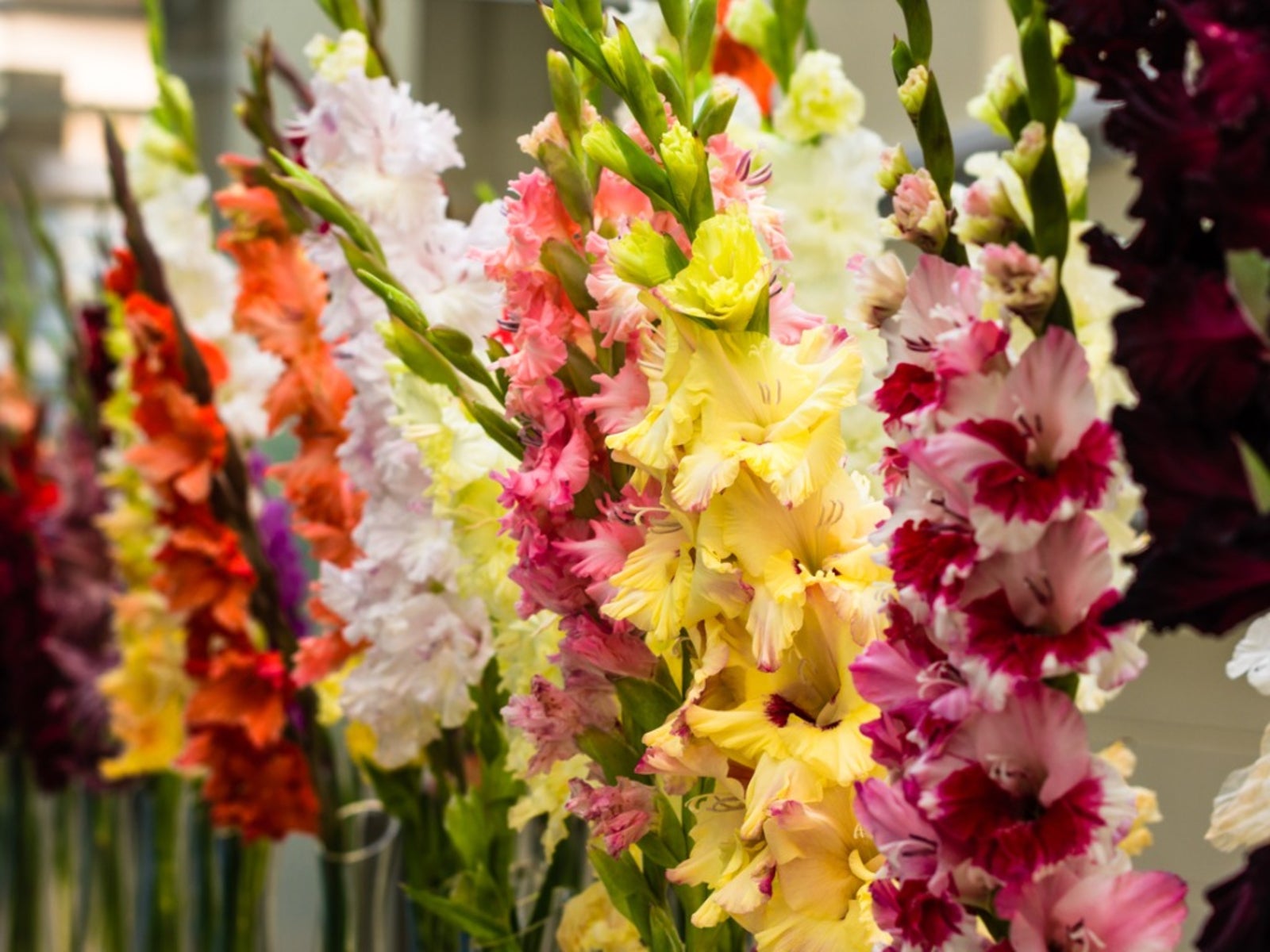Care Of Gladiolus - How To Grow Gladiolus In Your Garden


Sign up for the Gardening Know How newsletter today and receive a free copy of our e-book "How to Grow Delicious Tomatoes".
You are now subscribed
Your newsletter sign-up was successful
Gladiolus plants grow wonderfully in the warm weather of summer. You can produce these flowers in sequence by planting some corms every few weeks or so. Learning how to take care of gladiolus will reward you with a huge array of colors and they also work out great for cut flowers. Let's look at how to grow gladiolus.
How to Grow Gladiolus
Gladiolus corms look like oversized crocus corms. They have a brown fiber wrapper with a small flat bottom. Sometimes they already have pointy shoots showing at the top. Follow these growing tips to help with care of gladiolus:
- Gladiolus prefer well-drained and even sandy soil. They also like sunny locations.
- You will want to plant the gladiolus deeper than usual because they have a tall sheaf of leaves. This will help anchor them against strong winds that might blow them over to the ground.
Gladiolus - How to Plant
With gladiolus, how to plant is just a few simple steps:
- First dig a trench about 8 inches (20 cm.) deep. Make it long enough that you can space your corms about half a foot (15 cm.) apart. That spacing might seem a bit strange to you, so placing them in a semi-circle or oval will help. Make sure the space is large enough to handle about ten corms for a nice display.
- You will want to fertilize the corms with 5-10-10 or 5-10-5 fertilizer. Put the recommended amount in the bottom of the planting area but be sure to mix the soil and fertilizer well so you don't burn the corm. Add a layer of unfertilized soil before placing the corm into the trench.
- You should start your planting of your gladiolus in midspring. From that point, make some new plantings every two weeks. They take 70 to 100 days to grow and flower so planting every couple of weeks gives you flowers right on through summer. If these flowers will be exposed to wind, you will definitely want to stake them.
- Stop planting your gladiolus in summer, around mid-July.
- Keep your gladiolus watered well during their growing period and make sure to mulch the soil around them to keep it moist.
Gladioli are only completely hardy in USDA plant hardiness zones 8 to 11. In zones 6 to 7, they thrive if the bulbs are protected by a thick mulch throughout the winter. Proper care of gladiolus requires the use of fertilizer. As they come up, you can fertilize the new gladioli batches when you see the flower spikes start to show. After you pick the flowers, you can fertilize again. When you fertilize, just add the granules next to the flower, then scratch the soil with a cultivator to mix it a little.
How to Care for Gladiolus in the Winter
Rather than leaving the corms in the ground to winter, you can dig the corms up for storage four to six weeks after you pick the flowers.
- Dig the corm up and shake as much soil as you can off the corm. Trim back the leaves to within an inch (2.5 cm.) of the corm itself.
- Let the corm dry up for about a week. After that, you can brush off remaining soil.
- Store your gladiolus in a dry, dark, cool place in a mesh bag or old pantyhose to prevent moisture from aiding mildew to grow. Also protect them when you store them because mice love gladiola bulbs.
Gladiolus plants are a lovely addition to any garden. Knowing how to grow gladiolus and proper care of gladiolus will ensure that these delightful flowers will grow well in your garden.
Sign up for the Gardening Know How newsletter today and receive a free copy of our e-book "How to Grow Delicious Tomatoes".

Heather Rhoades founded Gardening Know How in 2007. She holds degrees from Cleveland State University and Northern Kentucky University. She is an avid gardener with a passion for community, and is a recipient of the Master Gardeners of Ohio Lifetime Achievement Award.